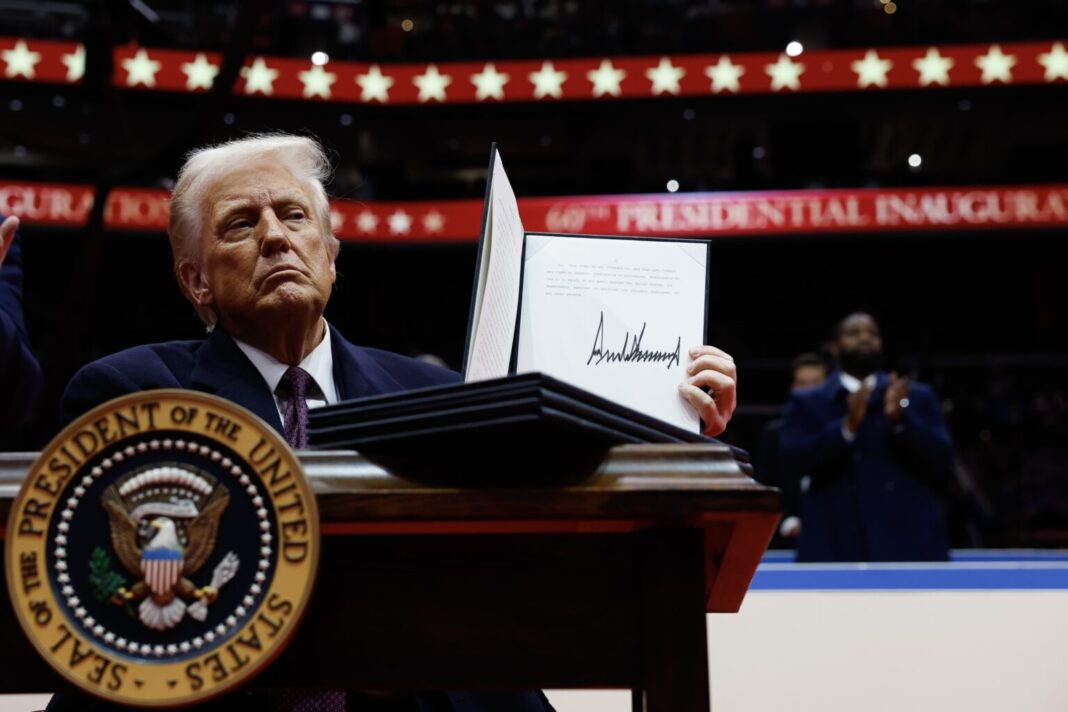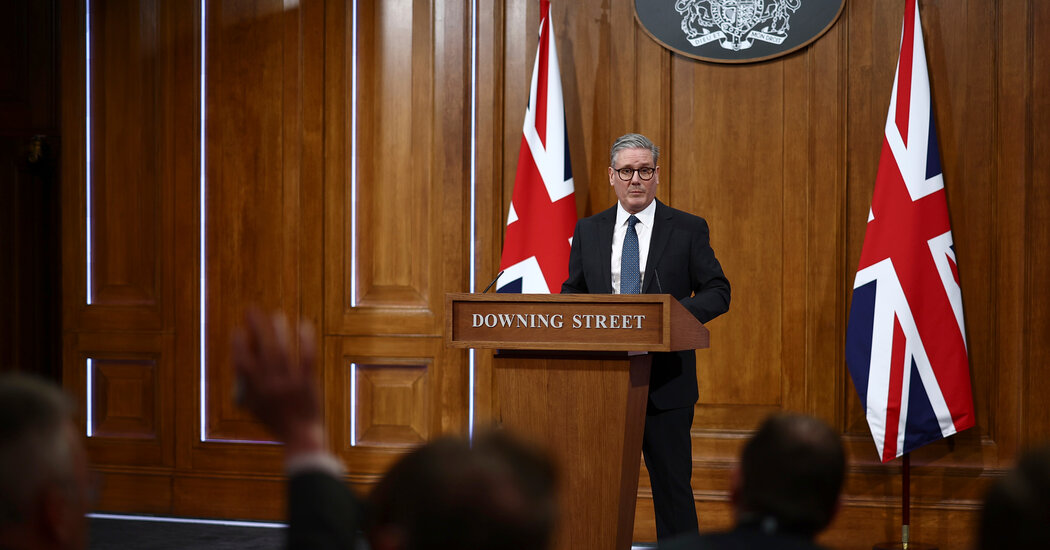President Donald Trump has announced that the United States will withdraw from the Paris Climate Agreement, a global pact to combat climate change, for the second time. The decision comes as Trump begins his second term in office, echoing his controversial 2017 withdrawal from the same accord.
During a White House announcement on Monday, Trump justified the move by claiming it was necessary to prioritize the United States’ economic interests. “The Paris Agreement imposes unfair costs on American workers while other nations continue to pollute without consequence,” Trump stated.
The Paris Agreement, adopted in 2015, aims to limit global warming to well below 2°C, with efforts to keep it to 1.5°C above pre-industrial levels. It is a voluntary pact allowing countries to set their own targets for reducing greenhouse gas emissions.
The agreement’s goals have become urgent as global temperatures rise, with scientists warning that exceeding the 1.5°C threshold could have devastating impacts on ecosystems and human life.
Critics of Trump’s decision argue that the withdrawal undermines global efforts to combat climate change. Ani Dasgupta, President and CEO of the World Resources Institute, noted, “It simply makes no sense for the United States to voluntarily give up political influence and pass up opportunities to shape the exploding green energy market.”
United Nations Climate Change Executive Secretary Simon Stiell added that ignoring the global clean energy boom sends wealth to competitor economies while climate disasters like droughts, wildfires, and superstorms worsen.
Despite Trump’s claims, climate advocates emphasized that clean energy technologies are driving economic growth. Gina McCarthy, a former White House climate adviser, said, “Clean technologies are creating jobs and reducing energy costs for Americans.”
The United States is the second-largest emitter of carbon dioxide, contributing nearly 22 percent of global emissions since 1950, according to the Global Carbon Project. Trump’s withdrawal could embolden other nations, like China, to scale back their commitments to reducing emissions, climate experts warn.
The Paris Agreement, signed by more than 190 countries in 2015, represents a landmark effort to address climate change. Its primary goal is to limit global warming to well below 2°C, ideally 1.5°C. While non-binding, the agreement relies on countries voluntarily setting and updating their emissions targets.
Since its adoption, the pace of global warming has accelerated, with temperatures now rising faster than scientists initially predicted. Sustained warming above 1.5°C is expected to drastically reduce humanity’s ability to adapt to climate impacts, underscoring the critical importance of international cooperation.


